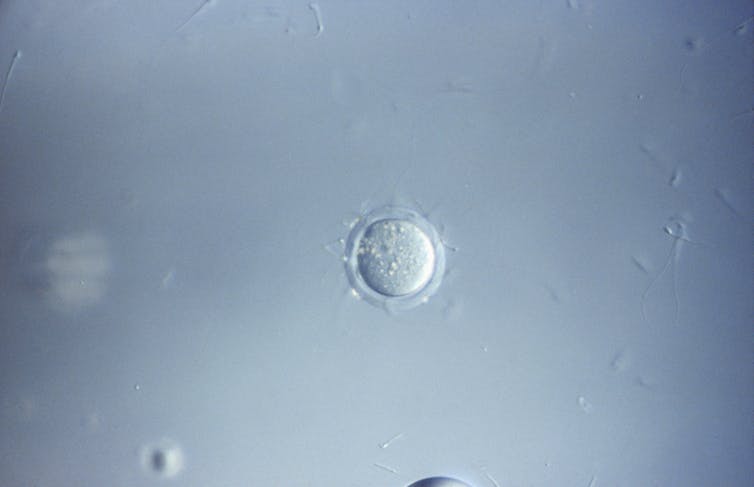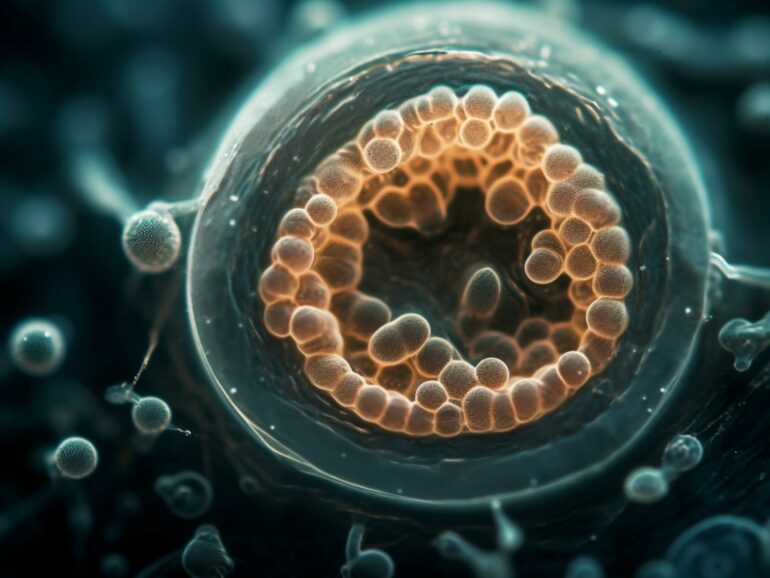Assisted reproductive technologies are medical procedures that help people experiencing difficulty having or an inability to have biological children of their own. From in vitro fertilization to genetic screening to creation of viable eggs from the skin cells of two male mice, each new development speaks to the potential of reproductive technologies to expand access to the experience of pregnancy.
Translating advances from the lab to the clinic, however, comes with challenges that go far beyond the purely technical.
Conversations around the ethics and implications of cutting-edge research often happen after the fact, when the science and technology have advanced beyond the point at which open dialogue could best protect affected groups. In the spirit of starting such cross-discipline conversations earlier, we invited developmental biologist Keith Latham of Michigan State University and bioethicist Mary Faith Marshall of the University of Virginia to discuss the ethical and technological potential of in vitro gametogenesis and assisted reproductive technology post-Roe.
How new are the ethical considerations raised by assisted reproductive technologies?
Keith
Every new technology raises many of the same questions, and likely new ones. On the safety and risk-benefit side of the ethical conversation, there’s nothing here that we haven’t dealt with since the 1970s with other reproductive technologies. But it’s important to keep asking questions, because the benefits are hugely dependent on the success rate. There are potential biological costs, but also possible social costs, financial costs, societal costs and many others.
Mary Faith
It’s probably been that way even longer. One of my mentors, Joseph Francis Fletcher, a pioneering bioethicist and Episcopal priest, wrote a book called “Morals and Medicine” in 1954. It was the first non-Roman Catholic treatment of bioethics. And he raised a lot of these issues there, including the technological imperative – the idea that because we can develop the technology to do something, we therefore should develop it.
Fletcher also said that the use of artifice, or human-made creations, is supremely human. That’s what we do: We figure out how things work and we develop new technologies like vaccines and heart-lung machines based on evolving scientific knowledge.

Scientists were able to create a mouse egg from the skin cells of male mice.
Clouds Hill Imaging Ltd./Corbis Documentary via Getty Images
I think that in most cases, scientists should be involved in thinking about the implications of their work. But often, researchers focus more on the direct applications of their work than the potential indirect consequences.
Given the evolution of assisted reproductive technology, and the fact that its evolution is going to continue, I think one of the central questions to consider is, what are the goals of developing it? For assisted…



